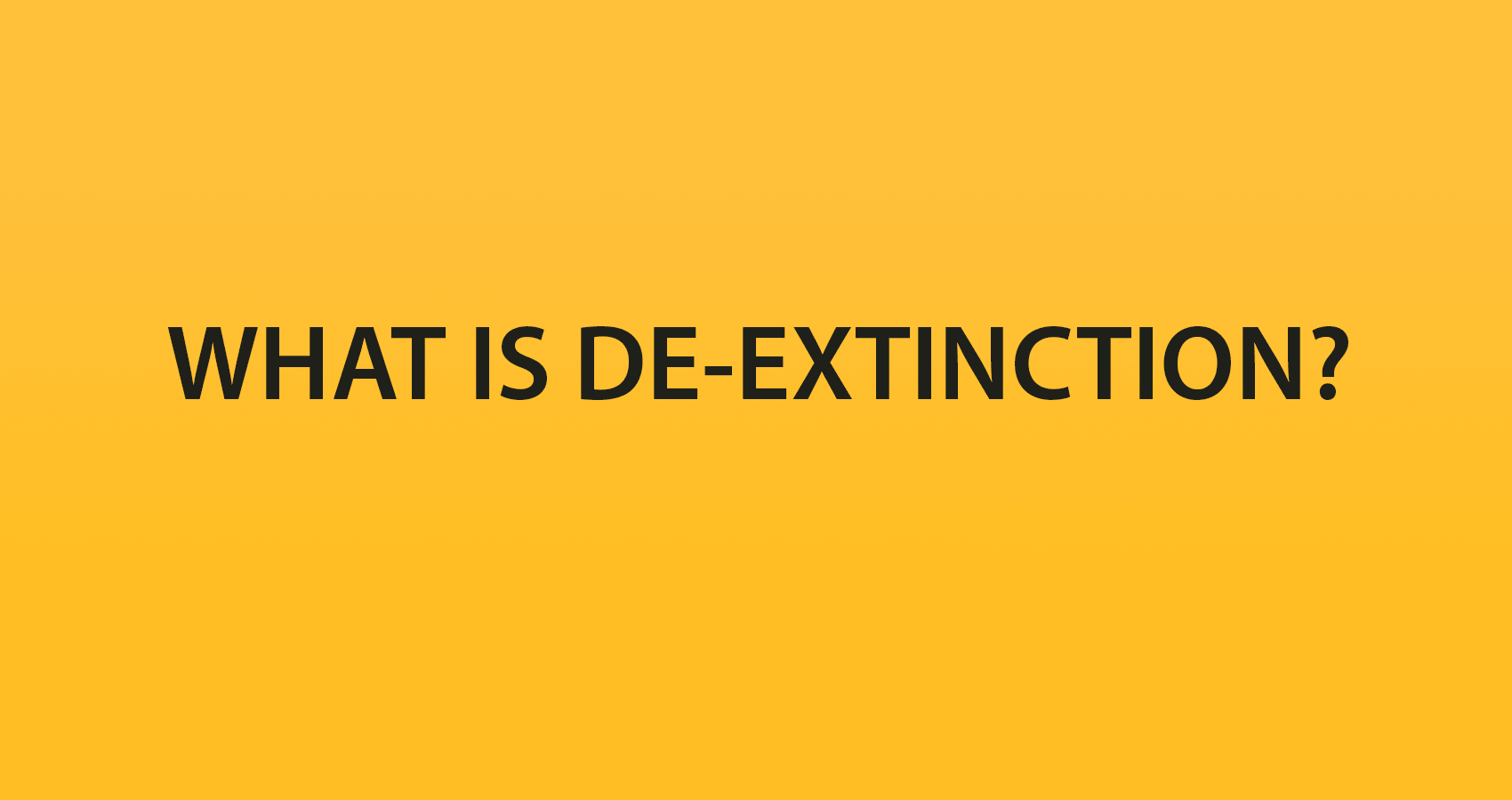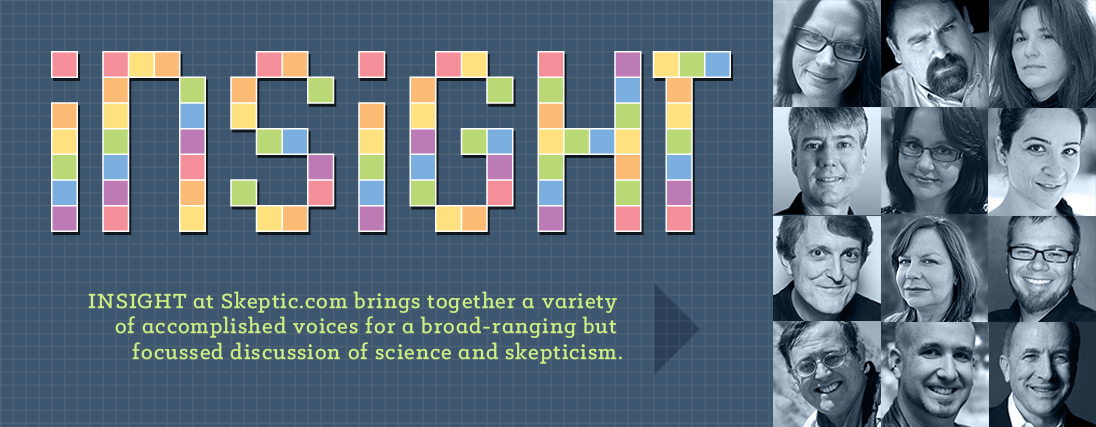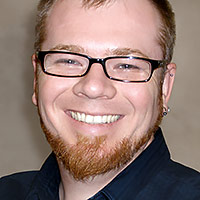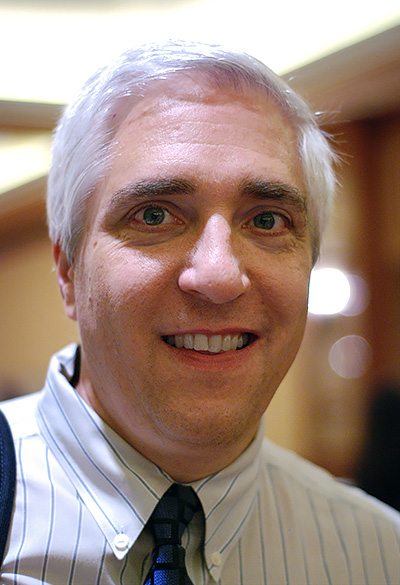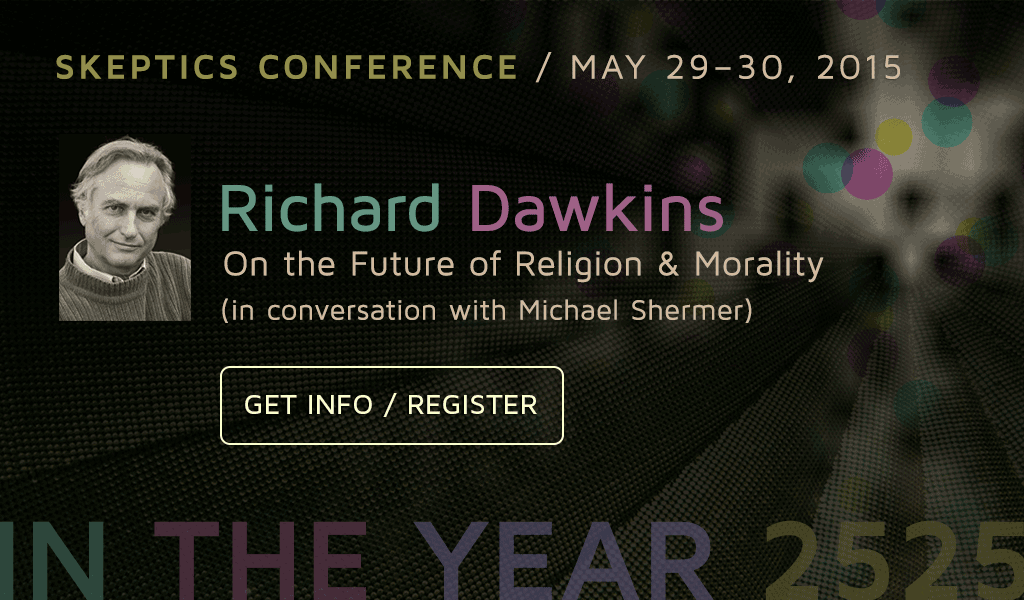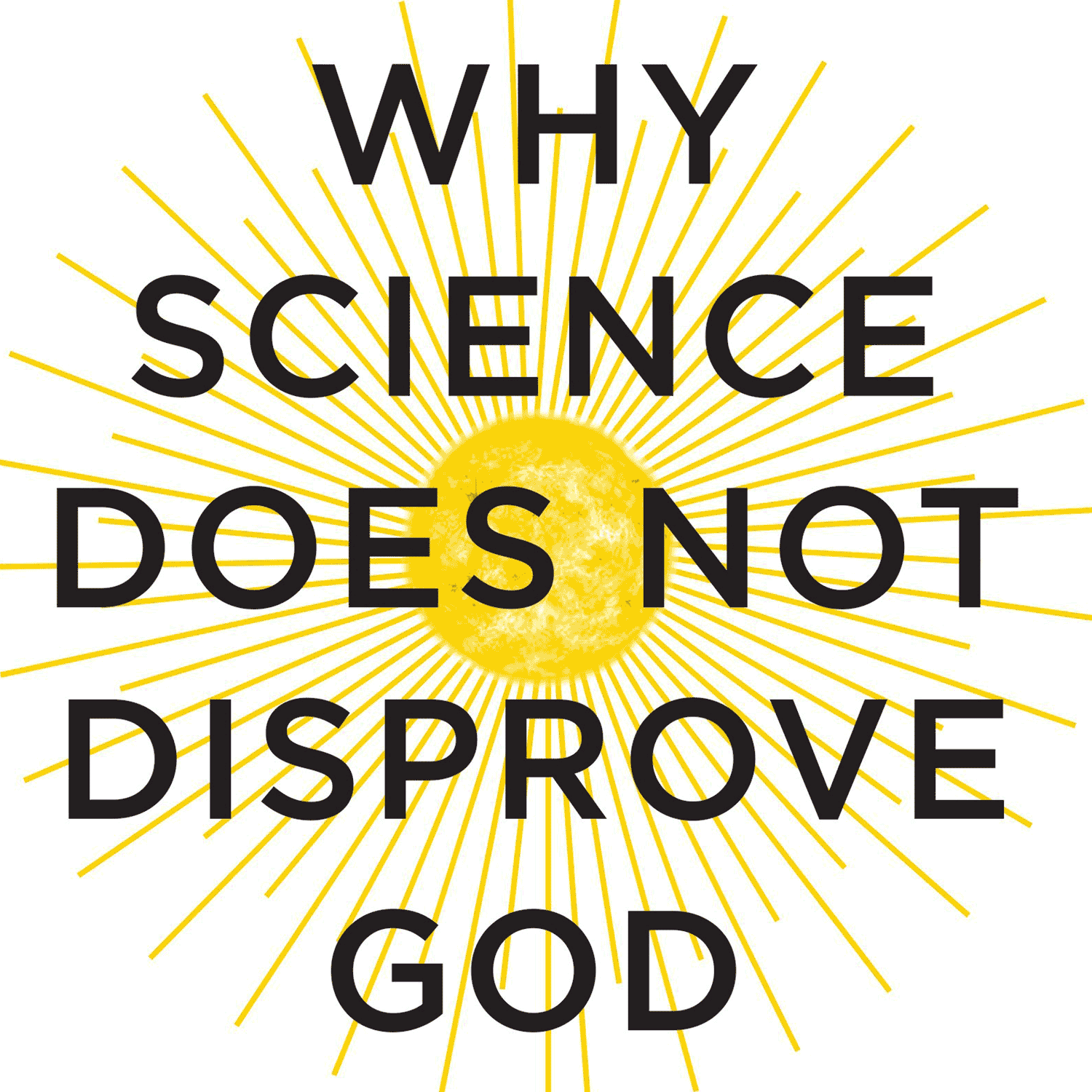
About this week’s eSkeptic
In this week’s eSkeptic, Glenn Branch reviews Why Science Does Not Disprove God, by Amir D. Aczel. This review was published in Skeptic magazine 20.1 (2015).
Glenn Branch is deputy director of the National Center for Science Education, a non-profit organization that works to defend the teaching of evolution and climate science in public schools.
Proof & God
a book review by Glenn Branch
A statistics professor turned science writer, with a string of popular books on various topics in mathematics, physics, and the history of science to his credit, Amir D. Aczel turns, in Why Science Does Not Disprove God, to the vexed subject of science and religion. Addressing the same general audience, he argues that “modern science has not disproved the existence of God” (p. 4). He makes the stronger and separable claim that “spirituality, religion, and faith have important roles to play in our lives” (p. 5), but he does not argue for it here. His targets, unsurprisingly, are the so-called New Atheists, particularly Richard Dawkins and Lawrence Krauss.
Of the three significant concepts in the book’s title, Aczel concentrates on science. The first six chapters (including a chapter on biblical archaeology, which is not really relevant to his theme) march the reader through the history of science, with occasional swipes at Dawkins and Krauss en route, and the next five chapters directly engage the New Atheist arguments on topics in physics and mathematics. Three chapters discuss evolution, culture, and the infinite, following which the final chapter summarizes the argument. Throughout, however, Aczel fails to interrogate the other two significant concepts of his book’s title—proof and God—and the results are calamitous for his project.
For Aczel, a mathematician by training, proof appears to be the mathematical notion of proof: a deductive argument from unchallenged premises for a necessary conclusion. It is certainly possible to attempt to offer a proof of the non-existence of God: the familiar conundrum “Can God create a rock so big that He can’t lift it?” is a gesture toward doing so. But such a proof, if successful, reveals that the concept of God is inconsistent; science is neither necessary for nor helpful in its construction. Indeed, it is practically a platitude, even for the New Atheists, that science alone is incapable of constructing such a proof that there is no God—so why write a book arguing for the point?
That Aczel is assuming the mathematician’s notion of proof seems evident from his treatment of Dawkins. In The God Delusion (2006), Dawkins describes his atheism as attributing a non-zero probability to the existence of God: “I cannot know for certain but I think God is very improbable, and I live my life on the assumption that he is not there.” Insofar as Dawkins’s atheism depends on empirical claims that cannot be known with certainty, this seems like a reasonable claim. Yet Aczel refuses to acknowledge the possibility of a position such as Dawkins’s, instead asking, “Why does the world’s most prominent atheist suddenly hedge?” (p. 13), and not pausing to look for the answer.
Thus Aczel assumes, far too often, that the incompleteness and fallibility of current scientific knowledge—its incapacity to rise to the level of mathematical proof—provide a refuge for God. With regard to the origin of life, for example, he writes, “the question of a beginning of the process of life through a powerful set of commands, something like a primeval piece of computer code, is unavoidable. How is it possible to prove that no outside force created the code?” (p. 168). Perhaps it isn’t; but so what? Worse, Aczel occasionally infers from the mere fact that a hypothesis is not disprovable that it is scientifically “viable” (p. 168), which is ludicrously indefensible.
What about God? Quoting the literary critic James Wood, Aczel suggests, plausibly, that the New Atheism “often seems engaged only in doing battle with scriptural literalism” (p. 20), a position that he acknowledges is thoroughly debunked: “The discoveries of fossils, evolution, geological time, the rotation of the Earth, and other developments in science showed that Scripture should not be taken literally” (p. 93). It is disturbing, though, that even so he insists that Genesis lists the order in which living things are created in a way that is “not in disagreement with evolution” (p. 93). In fact, the Genesis narrative conflicts not only with evolution but with itself: compare Genesis 1 and Genesis 2.
Commendably unwilling to defend scriptural literalism, Aczel is not willing to specify what it is about God that he wants to defend. At times, it seems only the mere label: of the postulated superforce in which the basic four forces were once unified, he intones, “Some might call it God” (p. 103); of the supposed fine-tuning of the universe, he endorses the idea that “something like a miracle” (p. 180) might have been responsible; of the infinite, he urges, “one could say that [it] belongs to God” (p. 231). Indeed, but what explanation or insight would doing so afford, especially in light of Aczel’s admission that “we do not know what God is” (p. 252)?
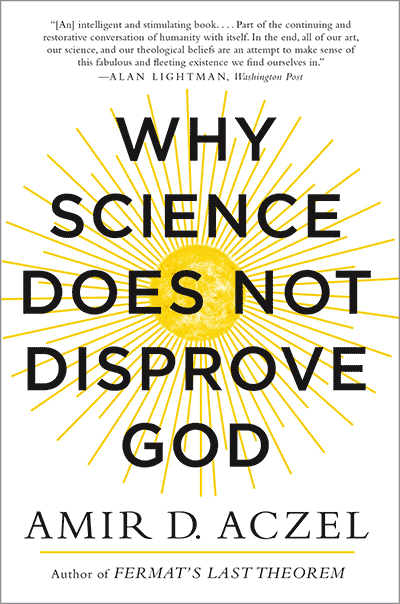
Why are theologies that attempt to accommodate modern science not discussed in Why Science Does Not Disprove God? In his introduction, Aczel explains that he is not writing from the perspective of any particular faith and that he is not seeking to defend any particular religious institution. But neither restriction would have prevented him from describing a variety of theological positions. Perhaps as a science writer he was uncomfortable doing so. But in any case, his silence in effect implies that there are only two choices: scientific atheism of the sort that he opposes and etiolated, in-name-only, faith—which surely, by his lights, is a counterproductive result.
The ramifications of Aczel’s not examining the concepts of proof and God are not the only irritations of the book. The treatment of evolution is particularly disappointing. Aczel wrongly identifies only natural selection as a mechanism of evolution, ignoring genetic drift, mutation, migration, and less basic mechanisms such as endosymbiosis. He misleadingly describes both Homo erectus and Australopithecus afarensis as a “missing link” between humans and apes, thus reinforcing a host of common misconceptions about human evolution. And, in a passage that creationists will forever quote without regard to its context, he writes, “The theory of evolution has flaws” (p. 201).
What are the flaws of the theory of evolution, in Aczel’s view? In part that it fails to provide complete explanations of various phenomena: the peacock’s tail, altruism, the origin of life, the emergence of eukaryotic cells, consciousness. In part that it is not quantum mechanics: Aczel devotes a table to the comparison, with evolution stigmatized as insufficiently mathematizable, rigorous, predictive, precise, and accurate. These complaints, however, are in mutual tension if not outright contradictory: after all, even if it is conceded that the evolutionary explanation of the peacock’s tail is not complete, quantum mechanics is hardly going to provide any further insight.
Aczel is not convincing about these flaws in any case. While discussing altruism, the evolutionary topic to which he devotes the most space, he dismisses kin selection by asking, “would people die for a sibling more willingly than for a child? Such ‘genetic’ computations seem questionable” (p. 203). In fact, individuals are on average equally genetically similar to their siblings and to their children, so the relevance of his question is unclear. Aczel argues that cases of altruism with regard to strangers are evolutionarily unexplainable, apparently on the mistaken assumption that the biological infrastructure for altruism is bound to influence behavior directly, unmediated by culture.
On physics and mathematics, Aczel’s critique of the New Atheism is often on point. In chapter 7, he dismisses Krauss’s claim in A Universe from Nothing (2012) that physics explains why there is something rather than nothing by noting that the quantum foam from which the universe sprang in Krauss’s view isn’t nothing. In chapter 11, described as “the book’s most important chapter,” he incisively criticizes the anthropic principle as unexplanatory. Elsewhere, he faults Dawkins for relying on a statistical study of the religious beliefs of a prestigious group of scientists that was conducted by e-mail and received only a 23% response, thus establishing nothing of significance.
But there is often a tinge of legerdemain, especially when Aczel appeals to technicalities to establish philosophical results. In chapter 9, he scolds Dawkins for not assuming that the prior probability of God’s existence is 50 percent. He misreads Dawkins there, but he also fails to note that the principle of indifference he invokes is highly contentious. In chapter 14, he rehearses Russell’s paradox, concluding not only that there is no universal set but also that there are disturbing consequences that “hint at our inherent inability to ever know everything about creation” (p. 227). But he overlooks the set theories, such as Quine’s New Foundations, that have no problem with the existence of a universal set.

When it comes to the history of science, the narrative approach Aczel employs is useful and appealing, although somewhat hackneyed in its use of familiar episodes and anecdotes (including the story of Euler’s algebraic rebuke to Diderot’s atheism, which is definitely apocryphal). But there is sometimes cause to wonder about the depth of his knowledge of the material. Aczel fails to cite literature that would, if anything, bolster his case, especially when he offhandedly dismisses the Middle Ages as a period in which “there were few attempts to pursue science” (pp. 64–65), suggesting his thoroughgoing ignorance of the work of modern historians of medieval science.
Aczel writes clearly and fluently, and the text is occasionally enlivened by his engaging reports of his interviews with sympathetic contemporary scientists. But the value of his book overall is vitiated by not only his sloppiness with the historical, scientific, and philosophical material but also his uncharitable treatment of his opponents. (The worst example of the latter flaw is the offensively inaccurate observation, “I have never heard of an atheist group volunteering to offer comfort to the ill or the distressed” [p. 205], which is somehow the fault of Daniel Dennett.) Anyone seeking a judicious critique of the New Atheism’s claims about religion and science will be disappointed by Aczel’s book. ![]()


